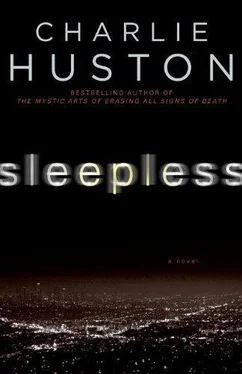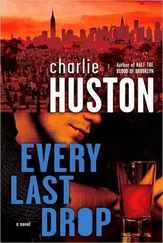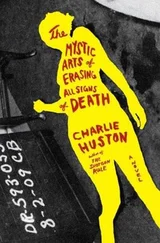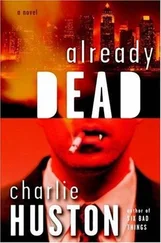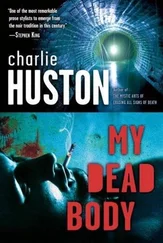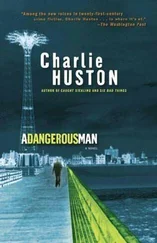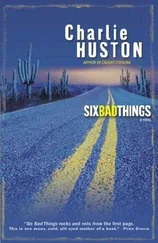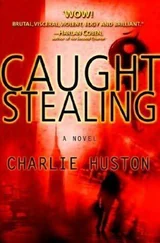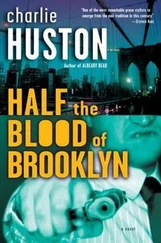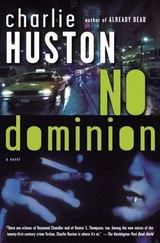Staring at the dark wainscoted wall behind the bar, Park’s mouth hung just slightly open, as if he were trying to weigh the implications of bad news that had just now been brought to him.
“My wife is dying.”
Senior patted his shoulder and walked back to his chair.
“Yes, I know.”
He sat.
“Mine died several years ago. My second wife. I was divorced from my first. Although she is dead as well. My second wife, it’s odd to call her that, I only ever think of her as my wife. You have a baby.”
Park spoke to the glass he held in his lap.
“A daughter.”
“I’d been told about your wife, but the baby, is she?”
“I don’t know. My wife doesn’t want her tested.”
“Yes, I can understand that. It was cancer that killed my wife. Lung cancer. We both smoked far beyond the point of reckless idiocy. To this day I refuse to have a lung X-ray. Afraid to know what may be waiting for me. Although at my age it hardly seems to matter. Something will finish me soon enough. Does your daughter sleep?”
Park took a sip of the water.
“She did, at first. But the last few weeks, it’s hard to say.”
“How’s that?”
“She cries all the time. Or it seems that way. But I’m not home very much. And my wife, she. I’m not sure how clearly she remembers if the baby is sleeping when I’m not there. The woman who helps us, she says the baby sleeps, but it never looks like sleep when I see it. Her eyes are usually open. And it never lasts.”
Senior looked at the ceiling.
“What I remember from having babies around, and I’ll be the first to admit I wasn’t at home often when I had babies, but what I remember is that they can be that way. Cry nonstop, go days without sleep, crying the whole time. Hours and hours of crying. Could be your daughter is just colicky.”
Park didn’t say anything.
Senior looked down from the ceiling.
“What’s her name?”
Park ran a thumb up and down the facets on the side of his glass.
“Omaha.”
“The hell you say.”
“My wife said, ‘No one will fuck with a girl named Omaha.’”
Senior smiled.
“She had a point there.”
He dropped his smile.
“You should have her tested.”
Park nodded, looked for somewhere to put down his water glass, placed it on a bookshelf behind his shoulder, and faced the other man.
“Your son sold me Dreamer on two separate occasions. I’m going to arrest him. Is he at home?”
Senior cocked his head to the side.
“You’re going to arrest my son because he?”
“Charges of possession and sale of a restricted substance. But I have evidence that could lead to racketeering charges. Money laundering. Tax evasion. And charges relating to the murders of a man named Hydo Chang and several of his associates.”
“You think my son killed someone.”
“I believe that several young men found shot in gangland style were his Dreamer retailers and that they were killed over matters relating to the sale of Dreamer. I believe that it is likely Parsifal K. Afronzo Junior was involved in those killings.”
Senior drew his brows together.
“Then it is my son who you suspect as the mastermind behind the Dreamer black market?”
“I think it is possible. Although I think you are a more likely suspect.”
Senior pulled his brows apart.
“You are direct. You are direct. Well.”
He placed his hand on the snifter he’d set down earlier.
“In the interest of directness, I’d like to say a few words that might shed considerable light on these suspicions of yours. If you don’t mind?”
Park looked at the door. He was aware that a performance was taking place. He was aware that he was being manipulated. He knew that if he let it draw to its conclusion, he might never leave the cottage. He’d been trying to apply the principles he’d learned from the Hurtin’ Man. That there was danger in the room was not at all in doubt, but whether that danger was best dealt with by attacking its source or by running from it was unclear. And probably beside the point. Park had little hope that either option would be successful. And it didn’t matter. Because what Park was most aware of was the slippage of time. Dawn would be coming. He needed to be home.
But he also needed to stay to the end of the show so he could know what happened.
He lifted a hand from his knee and turned it palm up.
“I would like to hear anything you have to say that might clarify this matter.”
Senior picked up the snifter, swirled the contents, and swallowed them.
“Good. Good.”
He kept hold of the empty glass.
“To start, you are correct; there is a black market trade in Dreamer. You are also correct that A-ND is involved in that trade. But frankly, that is the price of doing business today. Distribution, Officer, is not an easy matter. Beyond the fuel costs, security contractors to escort the shipments, cross-state inspections, Homeland Security checkpoints, and occasional corrupt officials, there are also the Teamsters. In order to bring our product to market in a timely and efficient manner, we often find we must circumvent criminal and bureaucratic roadblocks. Hell, our trucks sometimes have to deal with physical roadblocks. We have to pay people off. A lot of people. A great deal of money. Usually cash. Not only do we have to get this money from somewhere, but we have to hide it. What we’re doing, the payments we’re making, it doesn’t matter that we’re greasing people so we can get the Dreamer out where it will do some good; the payments, most of them, are far from legal. We’re bribing officials at every level of government. We have no choice. It’s mostly just a collection of fiefdoms at this point. City, state, federal, interdepartmental. Dealing with the road gangs is easier. And there’s no telling who might get it in their head to blackmail us for more or, God forbid, look to prosecute us if they found traces of what we’re doing. So we need invisible money. Dreamer itself is better than cash money. We could just toss a few cases off each truck whenever we hit a snag. But then what? Chaos is what. Dozens of free agents trying to sell off little stashes of Dreamer. It would be a mess. And the trail would lead directly to A-ND. Also, we saw that a Dreamer black market was inevitable. Too much demand and not enough supply. We saw that inevitability, matched it with our need for cash, and chose to create and control a black market ourselves. Shipments move through the supply chain to the local markets. Every time a container of Dreamer is randomly scanned, the RFID chips are right where the manifest says they should be. And that’s because they are where they should be. We don’t break them out until they reach the local level. Grease the folks handling inventory in the dispensaries, and that’s that. We can pull what we need. We sell by the case and pallet to hospices that have raised money through donations from the families of their wealthier patients, medicinal marijuana outlets, and yes, to some very robust and well-structured open source drug operations servicing low-income neighborhoods that are not well policed these days. As you said, the Dreamer end user has no interest in endangering the supply chain. Some larger institutions get shorted, but I have to feel that’s offset by the fact that this system actually gets Dreamer to many folks who wouldn’t otherwise have access. We’ve had very few leaks in the months it’s been running. As for Junior being the architect of all this, well, does my son strike you as an architect?”
Park thought about Cager.
“He strikes me as a very intelligent person.”
Senior frowned into his empty glass.
“And he is, he is. Very intelligent. Off-the-scale intelligent if IQ tests matter a good goddamn. But unfocused. And not what you’d call a people person. Incapable of wrangling something on this scale. He couldn’t bring his full abilities to bear on a problem like this because the human relations would make him too uncomfortable. That boy, I tell you, more natural ability, pure talent, than a father could hope to see in a son, and just, just, he cannot apply it to anything useful. Business, I understand it’s not for everyone, and I could; he can paint. I mean, expressive, powerful images. So if it had been that, painting, I would have been all for it. An artist son? I would have been damn proud. But even art, he just.”
Читать дальше
